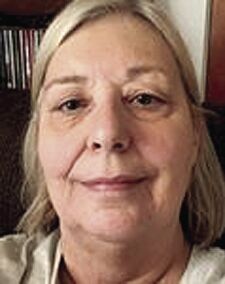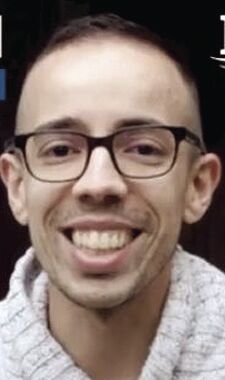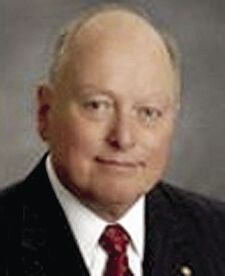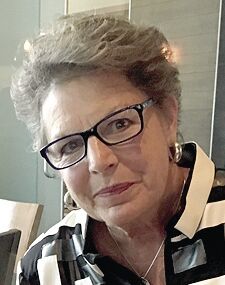LACONIA — The five Democrats who are running in Tuesday’s primary for the four seats in Belknap County House District 3 are diverse in terms of political outlook, personal life experiences, and age.
Carlos Cardona, Marcia Hayward, David Huot, Gail Ober, and Samuel Hoehn are competing for the four spots on the November general election ballot.
Huot is the only incumbent. Cardona and Ober have run for the office before, but lost. This is Hayward’s and Hoehn’s first bid for public office.
Huot, a former attorney and retired district court judge, has served five terms in the House, beginning with two terms in the 1970s. After retiring from the bench he was elected again to the House in 2012, but lost his bid for re-election two years later. He is currently serving a second consecutive term, having been returned to House in 2016.
In each of his five terms, Huot has served on the Finance Committee, which considers every bill which carries an appropriation, the majority requiring funding through the state budget. Huot said his expertise in the legislative and budget processes is a real asset.
“You learn how to assess a balanced budget,” said Huot, who now serves as a vice chair of the House Finance Committee. He said crafting a balanced budget in the coming legislative session could be especially challenging if state revenues take a significant hit in the wake of the COVID-19 crisis.
“I am a process guy,” Huot said. “Ninety-nine percent of what happens (in the Legislature) is process. You need someone with expertise,” he added.
Huot said he also takes particular interest in bills that relate to gun safety and child welfare.
Cardona and Ober are running again for the House after losing their bids for election two years ago.
Born in Puerto Rico, Cardona, 30, points out that he has lived in Laconia for 15 years, longer than anyplace else.
“I have firsthand knowledge of what is facing the city,” said Cardona, who is vice president of JC Swain, a resort marketing firm. He also serves as chairman of the Laconia Democratic Party Committee.
He believes the makeup of the Legislature should better reflect the demographics of Laconia in particular and the state as a whole.
“Our representatives in the Statehouse do not reflect the diversity in our city,” he said.
Cardona said he will defend the city’s interests, including fighting for bills that support public schools, small businesses, and which aim to provide property tax relief.
Ober is trying again to be elected after losing her first House bid in 2018 by just one vote in a recount.
A Laconia resident who has served in the Peace Corps and most recently has worked as a newspaper reporter, Ober said she is running “because I am sick of the rancor and bitter partisanship within the County Delegation and I think I can be a moderating influence.”
She said her biggest goals are to ensure the state pays cities and towns all the money that the state has promised, a position she says Republican and Democratic legislators have failed to champion.
Describing herself as a fiscal conservative, Ober said she will oppose any state budget that would place an additional burden on the state’s taxpayers.
“The general public has no appetite for tax-and-spend right now,” she said.
She acknowledged that she is “a little more conservative” than most other Democrats, but said she feels more comfortable in the party because, unlike Republicans, “I actually believe that government is for the public good.”
Hayward is a retired career educator, who started more than 30 years ago as a science teacher at Laconia High School before moving on to become principal of Belmont High School. Her final teaching position was as an adjunct faculty member in the state community college system. Her community involvement includes working with the Boys & Girls Club, the Lakes Region Scholarship Foundation, and leadership positions in her condominium association.
Listening to constituents concerns’ is central to Hayward’s idea of legislative service. She said that she would also see herself as someone who could bring people with differing opinions together in an effort to seek a compromise.
Hayward sees Laconia as going through a transformative phase.
“Times of transition can make for challenging decision making, while also opening new opportunities,” she said.
“I promise to be a voice for the voiceless,” she said. “I promise to abide by the will of my constituents.”
Hoehn, 30, who is working on a master's degree in criminology, said he entered the race because there were no other candidates who were talking about the need for change in policing.
“We need police reform," he said. "I’m tired of waiting.”
He believes that more privatization of police agencies, more reporting, and greater transparency are essential to effective police reform.
Hoehn also favors decriminalization of possession of illegal drugs, though he says those who manufacture and distribute drugs should still be prosecuted.
“Drugs are not going to go away. Addicts need help,” he said.
Hoehn, who only just registered as a Democrat in July, describes himself as “more of an independent.”
He voted in the 2018 primary as a Republican. He said he did that to vote for Eddie Edwards’ opponent in the race for the Republican nomination for the 1st Congressional District.
“It was really a vote against Eddie Edwards,” he said, explaining he was opposed to Edwards because of his prior work in law enforcement.
He said he changed his party affiliation to Democrat just a few days before the July 16 candidate filing deadline.



























(1) comment
Excellent
Welcome to the discussion.
Log In
Keep it Clean. Please avoid obscene, vulgar, lewd, racist or sexually-oriented language.
PLEASE TURN OFF YOUR CAPS LOCK.
Don't Threaten. Threats of harming another person will not be tolerated.
Be Truthful. Don't knowingly lie about anyone or anything.
Be Nice. No racism, sexism or any sort of -ism that is degrading to another person.
Be Proactive. Use the 'Report' link on each comment to let us know of abusive posts.
Share with Us. We'd love to hear eyewitness accounts, the history behind an article.